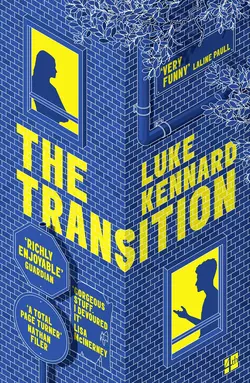The Transition

Luke Kennard
Тип: электронная книга
Жанр: Современная зарубежная литература
Язык: на английском языке
Стоимость: 612.81 ₽
Статус: В продаже
Издательство: HarperCollins
Дата публикации: 16.04.2024
Отзывы: Пока нет Добавить отзыв
О книге: Black Mirror meets David Nicholls in this dark and funny novel about love in dystopian times